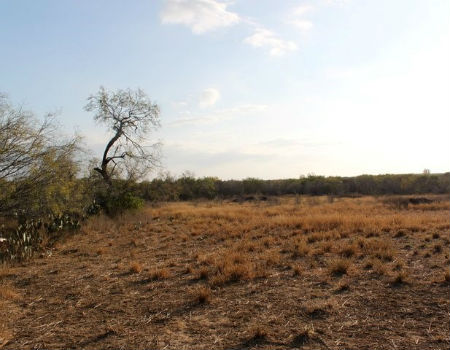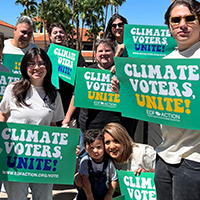Ahead of the People’s Climate March, climate justice is on this ninth-generation Texan’s mind

2011 was the year of Texas’ historic drought, and it was also the year my dad sold all the cattle on our ranch, which had been in our family for four generations. The drought brought to close a chapter in my family’s history, and a change in our long-standing relationship to the land that had given back to us for so long.
I’m not only a ninth generation Texan, but also the ninth generation of my family to be born in the City of Laredo. The community I come from is not wealthy. In fact, it is very poor. Laredo’s poverty rate is at about 30 percent. And it is not only poor but it is also 95 percent Mexican-American. Poverty and racism are factors that make communities vulnerable to all kinds of impacts, and climate change is one of them.
But my family is lucky. Even though our cattle business was impacted by the drought, my father has a career outside of ranching that makes up most of his income. The same is not true for the many people who were impacted by agricultural losses that year, totaling $10 billion statewide. National reports noted that temperature extremes were connected to manmade climate change, which doubled the chance that heat waves would occur.
What happened to the Chicano farmers from Laredo who lost everything and had no other career or local economy to fall back on? And if they had to move because of climate change’s impacts, were they welcome in new places?
Many at the People’s Climate March this weekend will be marching for climate justice – I know I am. Climate justice is about not only ensuring we stop the worst effects of climate change, but also that the most vulnerable among us are able to prosper in its aftermath. To achieve durable, equitable solutions, we have to break down siloes, and we have to think long-term – maybe even nine generations ahead of us.
This post first appeared on EDF’s Texas Clean Air Matters blog.



